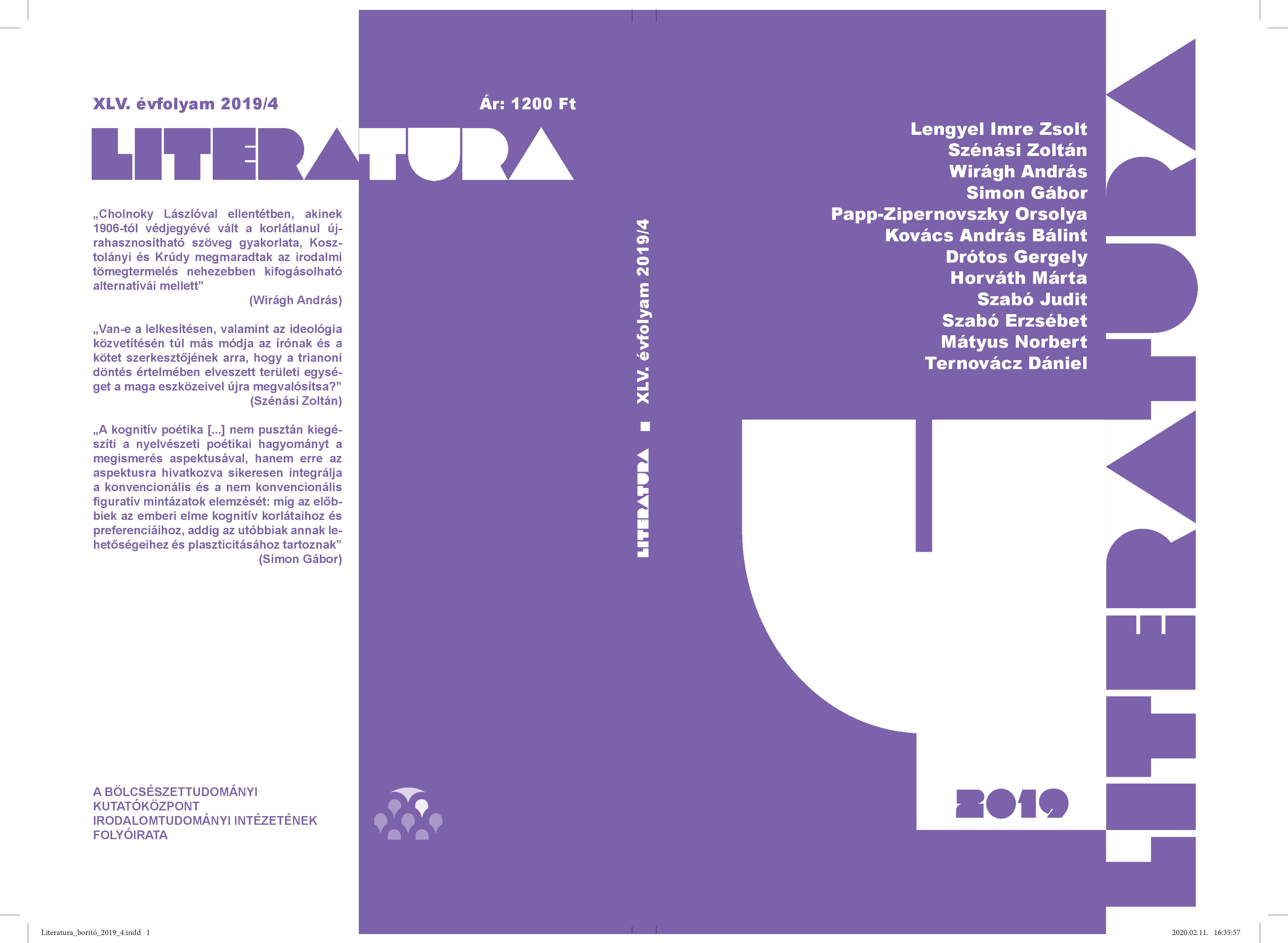Kapitalizmus és/vagy művészet
Hatvany Lajos: Zsiga a családban
Absztrakt
Capitalism and/or art. Hatvany Lajos: Zsiga a családban
The paper studies Zsiga a családban [Zsiga in the Family], a 1926 novel written by Hungarian writer and literary historian Hatvany Lajos. Drawing on the theories of
habitus (P. Bourdieu), performativity (J. Butler), practices of the self (M. Foucault) and ideology/utopia (F. Jameson) the paper proposes a framework to read modern
Hungarian literature as part of a wide-ranging debate on the desired forms of subjectivity. Hatvany’s novel is shown to represent the story of a Jewish-Hungarian
family as a case study on the dialectical relation between capitalism and the subject: the first part of the book focuses on the father who becomes dominant by fashioning himself into a living embodiment of economic rationality, while the second part follows the son, whose trajectory demonstrates how capitalist thinking is able to subsume even its apparent adversaries such as the arts or nationalism. The paper concludes with a brief overview of the novel’s contemporary reception, showing how both Jewish and far-right journals have taken the publication of the book as an opportunity to distance themselves from the types of subjectivity associated with capitalism.



